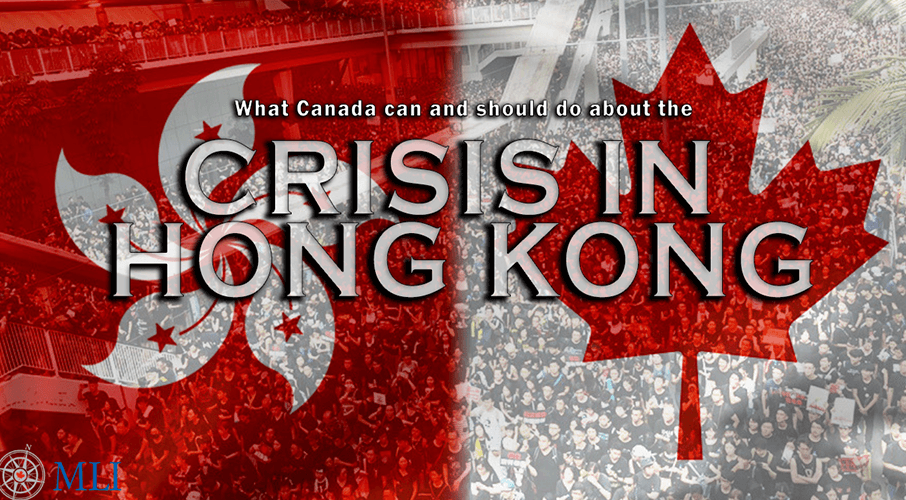 The situation calls for Canada to join and co-ordinate with other democracies in condemning police excesses in Hong Kong and calling for an independent inquiry into the matter, writes J. Michael Cole.
The situation calls for Canada to join and co-ordinate with other democracies in condemning police excesses in Hong Kong and calling for an independent inquiry into the matter, writes J. Michael Cole.
By J. Michael Cole, August 20, 2019
In recent weeks, the daily flow of young protesters getting tear gassed, truncheoned, fired at and assailed by anti-riot police and violent triad members on Hong Kong’s streets, in its MTR stations and at its shopping malls has grabbed headlines worldwide, sparking a crisis for the Chinese leadership unlike any it has faced since Tiananmen Square in 1989.
What started as a protest against a controversial extradition bill has mutated into a rising act of defiance against the Chinese Communist Party (CCP) and the “one country, two systems” formula, under which Hong Kong was incorporated into the People’s Republic of China in 1997. Young activists and a large swath of society behind them are now openly challenging Beijing’s writ in Hong Kong and are willing to take risks to defend their way of life.
Beijing has launched a campaign to discredit the protesters as “rioters,” even suggesting that some of their actions constitute “terrorism” — a term the Party has normally used to describe resistance in majority-Muslim Xinjiang and the 1989 Tiananmen Square protests. China has also signalled that the People’s Armed Police (PAP), and, in the extreme, the People’s Liberation Army (PLA) garrisoned in Hong Kong could become involved.
Beijing cannot — and will not — back down, as this could lead to similar appeals by other minorities in China and directly challenge the CCP’s grip on Chinese society. Unless the protesters back down (only temporarily, as the underlying issues will not have been addressed), Beijing and its proxies in Hong Kong will remain committed to an escalatory policy of repression.
Knowing this, what can Canada do to prevent excesses, if not a bloodbath, and ensure Hong Kong residents can defend their rights and freedoms? So far, our government’s response has been disappointing and, at best, inconsistent. Canada can, and should, do more.
The situation calls for Canada to join and co-ordinate with other democracies in condemning police excesses in Hong Kong and calling for an independent inquiry into the matter. Ottawa should hold Beijing and Hong Kong authorities to account for violating their commitments and responsibilities under the 1984 Sino-British Joint Declaration and Hong Kong’s Basic Law. It should also call for the complete removal of the extradition bill and for the release of unfairly detained protesters.
The Canadian government should avoid adopting Beijing’s propaganda which refers to the protesters as “rioters” and should not legitimize claims to a moral equivalence between the two sides. It should also firmly condemn Beijing’s claim that the protesters have engaged in terrorism, while nevertheless encouraging protesters to continue to adhere to peaceful strategies.
Ottawa must also ensure that Hong Kong students and their supporters on campuses nationwide can organize events without risks of intimidation or physical attack by their Chinese counterparts. With the Hong Kong crisis going global, law enforcement must look after the safety of people of Hong Kong origin who reside in Canada, as some of them may become targets of intimidation and retaliation by CCP proxies.
Finally, in concert with other countries, Canada should also be ready to impose targeted sanctions or travel bans against Hong Hong and/or CCP officials who are complicit in police brutality against peaceful protesters, especially if a PAP/PLA deployment in Hong Kong were to materialize. Ottawa should also make necessary preparations to offer assistance to imperilled Hong Kong residents seeking asylum in Canada. In a co-ordinated warning to Beijing, Canada must state that a PAP/PLA crackdown in Hong Kong would carry serious consequences for the CCP.
Given the severity of the situation and the potential for serious harm, rhetoric alone will unlikely change Beijing’s behaviour. Canada and like-minded allies must be prepared to respond should Beijing decide to act on its authoritarian instincts in Hong Kong.
Michael Cole is a Taiwan-based senior fellow with the Macdonald-Laurier Institute and former analyst with CSIS.




